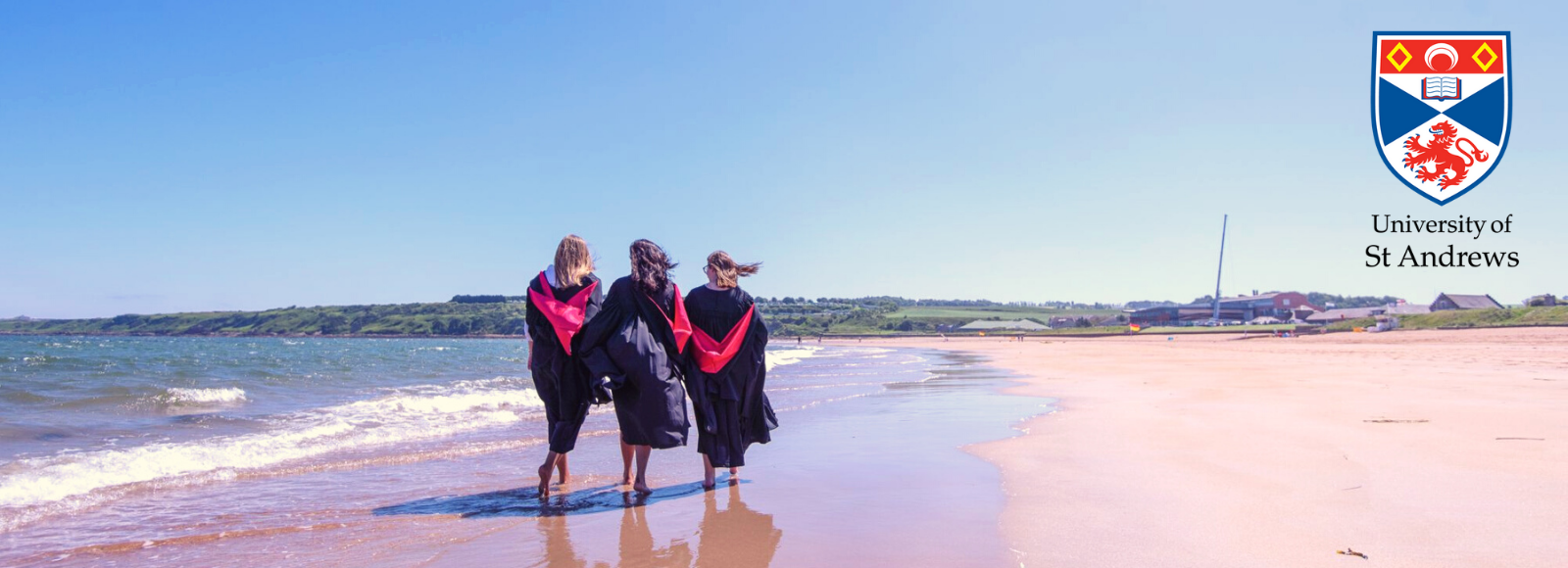Masters Degree Description
The MLitt in Medieval Studies is an interdisciplinary programme run by the St Andrews Institute of Medieval Studies (SAIMS).
Highlights
- Draws on the long-established and recognised strengths in medieval studies available from the participating disciplines – Art History, Divinity, English, History, Modern Languages and Philosophy.
- Gives students the opportunity to work closely with colleagues covering a vast range of expertise from Late Antiquity to the 15th century and across the medieval world, from the Middle East and the Mediterranean to the British Isles and Scandinavia.
- Introduces different theoretical approaches, current debates and the nature of cross-disciplinary and interdisciplinary work in the fields of history, art history, languages and literature.
- Offers an opportunity to combine training in manuscript studies and palaeography with interdisciplinary work or single discipline modules.
- Includes weekly seminars and regular workshops, bringing students into direct contact with visiting academics.
Entry Requirements
A 2.1 Honours undergraduate degree. If you studied your first degree outside the UK, see the international entry requirements.
The qualifications listed are indicative minimum requirements for entry. Some academic Schools will ask applicants to achieve significantly higher marks than the minimum. Obtaining the listed entry requirements will not guarantee you a place, as the University considers all aspects of every application including, where applicable, the writing sample, personal statement, and supporting documents.
Application requirements
- CV or résumé. This should include your personal details with a history of your education and employment to date.
a personal statement
- a sample of your own, single-authored academic written work (2,000 words)
- two original signed academic references (on university headed paper) from your most recent degree awarding institution
academic transcripts and degree certificates
For more guidance, see supporting documents and references for postgraduate taught programmes.
Fees
For fees and funding options, please visit website to find out more
Student Destinations
As well as pursuing study at PhD level, other graduates of the course have gone on to pursue careers in a range of sectors including:
- journalism
- publishing
- archives
- heritage
- government
- law
- management
- teaching
The Careers Centre offers one-to-one advice to all students as well as a programme of events to assist students in building their employability skills.
Module Details
Compulsory
- Approaches to Medieval Studies 1: covers a range of themes essential to understanding multi-disciplinary approaches to the Middle Ages.
- Approaches to Medieval Studies 2: explores a broad issue from a variety of disciplinary and theoretical perspectives, using selected texts, images and artefacts to anchor discussion.
Optional
Students choose three to five optional modules depending on module credits (students have 60 credits for optional choices from both 10-credit and 20-credit modules).
Here is a sample of optional modules that may be offered.
- An Introduction to Palaeography with Codicological and Manuscript Studies 1: equips students to tackle the reading, transcription and interpretation of manuscripts up to c.1200.
- An Introduction to Palaeography with Codicological and Manuscript Studies 2: equips students to tackle the reading, transcription and interpretation of manuscripts 1200-1500.
- Core Language and Text Skills (Greek or Arabic): provides an introduction to one of the core languages for studying the Middle Ages.
- Directed Reading in Medieval Studies 1: a detailed study of a medieval topic of the student's own choice taught via tutorials with one or more colleagues in the participating Schools.
- Directed Reading in Medieval Studies 2: a detailed study of a medieval topic of the student's own choice taught via tutorials with one or more colleagues in the participating Schools.
- Discipline Skills: introduces students to one particular discipline within medieval studies: medieval art history, medieval English literature, medieval French language and literature, medieval German language and literature, medieval history, or medieval Italian literature.
- Latin for Medieval Studies 1: classes are offered at beginner, intermediate and advanced level, so students take the class most appropriate to their needs.
- Latin for Medieval Studies 2: classes are offered at beginner, intermediate and advanced level, so students take the class most appropriate to their needs.
- Medieval Language: provides an introduction to one medieval language. The languages normally available include Old Norse, Old English, Middle English, Medieval French, Middle High German, Medieval Italian, Medieval Occitan and Middle Scots.
Optional modules are subject to change each year and require a minimum number of participants to be offered. Some may only allow limited numbers of students. See the University’s position on curriculum development.
Dissertation
Student dissertations will be supervised by members of the teaching staff who will advise on the choice of subject and provide guidance throughout the research process. The completed dissertation of not more than 15,000 words must be submitted by a date specified in mid-August.
If students choose not to complete the dissertation requirement for the MLitt, there is an exit award available that allows suitably qualified candidates to receive a Postgraduate Diploma. By choosing an exit award, you will finish your degree at the end of the second semester of study and receive a PGDip instead of an MLitt.
Learn more about University of St Andrews

Scotland’s first university, an experience like no other
Masters programmes to help you find your future.
Are you looking to earn an outstanding pos...
